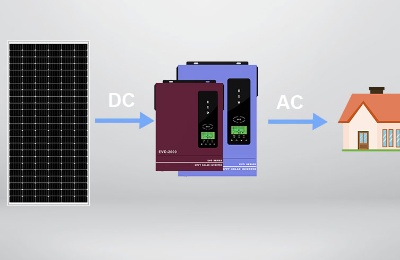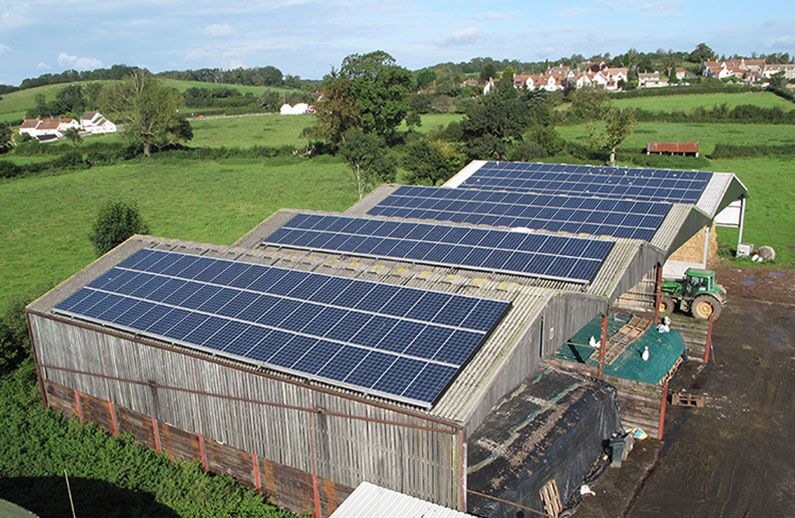Qual inversor é melhor, híbrido ou off-grid?
Aug 26, 2025
Ao escolher um sistema de energia solar, uma das decisões mais importantes é escolher o inversor certo. O inversor desempenha um papel fundamental na eficiência com que o sistema converte energia solar em eletricidade utilizável e tem impacto direto no desempenho geral, bem como na economia de custos a longo prazo. Entre as muitas opções disponíveis, duas das mais amplamente comparadas são os inversores híbridos e os inversores off-grid. Embora ambos sejam o coração de uma instalação solar, seu design, funcionalidade e melhores casos de uso diferem significativamente.Compreendendo os inversores off-gridUm inversor off-grid é projetado especificamente para sistemas solares que não estão conectados à rede elétrica. Ele converte corrente contínua (CC) de painéis solares ou baterias em corrente alternada (CA) para alimentar aparelhos. Esses inversores são essenciais em áreas remotas onde o acesso à rede elétrica é indisponível ou não é confiável. De acordo com um relatório da Agência Internacional de Energia Renovável (IRENA), mais de 770 milhões de pessoas em todo o mundo ainda não têm acesso confiável à eletricidade, tornando a energia fora da rede uma fonte de energia crítica. Inversor Solar Híbrido Off-Grid, que pode combinar energia solar, gerador e bateria, oferece flexibilidade para comunidades e empresas que não podem depender da rede elétrica. A principal vantagem de um inversor off-grid puro é a independência. Ele garante que as necessidades energéticas sejam atendidas integralmente por meio de energia renovável e capacidade armazenada em baterias. No entanto, a desvantagem reside na flexibilidade limitada: quando a bateria acaba e não há luz solar, podem ocorrer interrupções de energia, a menos que haja o suporte de um gerador de reserva. Compreendendo os inversores híbridosInversores híbridos, às vezes chamados de inversores conectados à rede com bateria reserva, combinam os benefícios dos sistemas on-grid e off-grid. Eles podem armazenar o excesso de energia em baterias e também realimentar a rede com o excedente. Essa dupla funcionalidade tornou os inversores híbridos cada vez mais populares em regiões com redes instáveis e custos de eletricidade em alta. Um relatório de 2023 da BloombergNEF destacou que os inversores híbridos estão crescendo a uma taxa composta de crescimento anual (CAGR) de mais de 12%, impulsionada pela demanda por independência energética e gestão inteligente de energia. Projetos modernos, como o Inversor Solar Híbrido Inteligente, permitem a comutação automática e contínua entre energia solar, rede elétrica e bateria, minimizando o tempo de inatividade e a perda de energia. Além disso, os modelos avançados agora apresentam Inversor Solar Híbrido Multi MPPT Tecnologia. O MPPT (Rastreamento de Ponto de Máxima Potência) otimiza a captação de energia de painéis solares, especialmente em instalações onde os painéis estão em diferentes orientações ou condições de sombreamento. Sistemas com múltiplos rastreadores MPPT podem alcançar uma eficiência energética de 10 a 15% maior em comparação com inversores com apenas um MPPT. Comparando DesempenhoTanto inversores off-grid quanto híbridos proporcionam conversão de energia confiável, mas sua eficiência e adaptabilidade variam dependendo do uso. Os sistemas híbridos são geralmente mais eficientes porque permitem múltiplas fontes de entrada de energia, enquanto os sistemas off-grid são projetados exclusivamente para independência. Abaixo está uma comparação lado a lado com base em considerações técnicas e práticas importantes: RecursoInversor Off-GridInversor HíbridoConexão de redeNão conectado à redePode conectar e exportar para a redeRequisitos de bateriaObrigatórioOpcional (mas recomendado)Faixa de eficiência85–93%92–98%FlexibilidadeLimitado a energia solar + bateriaIntegração solar, de bateria e de redeMelhor Caso de UsoÁreas remotas sem acesso à redeResidências/empresas com rede elétrica, mas com fornecimento instávelEnergia de reservaBaterias e/ou geradorBaterias, energia solar e backup de redeGestão Inteligente de EnergiaRaramente incluídoDisponível em modelos como o Inversor Solar Híbrido InteligenteCusto do sistemaMenor custo inicialMaiores economias iniciais e de longo prazo são possíveis Qual é o melhor para você?A escolha entre híbrido e off-grid depende de suas necessidades energéticas específicas: Se você mora em uma área remota onde a rede elétrica é inexistente, um inversor off-grid será a solução mais prática. Ele garante total independência energética, embora seja necessário investir em um banco de baterias robusto. Um inversor solar híbrido off-grid também pode ser considerado se você deseja flexibilidade adicional com a entrada do gerador. Se você mora em uma área suburbana ou urbana com acesso à rede elétrica, mas deseja resiliência contra interrupções, um inversor híbrido é mais adequado. A capacidade de realimentar a rede, juntamente com recursos inteligentes como gerenciamento de carga e monitoramento em tempo real, torna opções como o Inversor Solar Híbrido Inteligente ou inversor solar híbrido Multi MPPT, excelentes investimentos para segurança energética a longo prazo. Para instalações comerciais, inversores híbridos geralmente oferecem melhor retorno sobre o investimento. Ao reduzir a dependência da rede elétrica e vender o excedente de energia de volta às concessionárias, as empresas podem reduzir significativamente os custos operacionais. O futuro dos inversores solaresCom o crescimento da demanda por energia e o avanço da tecnologia renovável, os inversores híbridos estão se tornando a escolha dominante em todo o mundo. Uma pesquisa da Wood Mackenzie prevê que os inversores híbridos poderão representar mais de 60% de todas as vendas de inversores residenciais até 2030. Sua flexibilidade, integração com armazenamento de bateria e compatibilidade com redes inteligentes os tornam atraentes tanto para residências quanto para indústrias. Enquanto isso, os sistemas off-grid continuam sendo essenciais para a eletrificação rural e projetos humanitários. Seu papel continuará a se expandir em regiões sem infraestrutura de rede robusta, especialmente em partes da África, Sudeste Asiático e América Latina. Em última análise, a decisão não é sobre qual inversor é universalmente "melhor", mas sim sobre qual se adapta às suas necessidades específicas. Ambas as tecnologias são confiáveis, mas entender como elas se adaptam ao seu ambiente, consumo de energia e orçamento é a chave para maximizar a eficiência.



 REDE SUPORTADA
REDE SUPORTADA